These Are The Things That Good Parents Do
There’s no handbook for parenting. While this cliche might sound tired, it’s also true. There’s no universal manual for understanding what it takes to be a good parent, but patience and consistency can help make the job easier. Parents who’ve successfully raised their kids to leave the nest can tell you that practicing good habits makes all the difference. Read on for these wisdom-instilling tips…

They Love Their Children Unconditionally
Loving your child unconditionally means that nothing they do (no matter how naughty, dishonest, or disappointing) will change how you feel about them. While there are moments when you’ll get angry, this love will help your negative feelings and disappointment take a backseat to what’s important: the bond you have with your kid. If your child grows up knowing that there are no strings attached to your love for them, you’ll have an easier time developing mutual trust and honesty.
They Set Very Clear Rules
Your children may not always like it, but good parents set clear rules. Establishing boundaries helps equip them with a sense of discipline and responsibility. These crucial skills will serve them for their whole lives: personally, professionally, and as part of their greater community.

They Enforce The Rules
Rules are great, but they’re only effective when parents enforce those predetermined boundaries. Being firm and consistent teaches kids two things – first, that you mean what you say, and second, that they have a responsibility to others. Good parents don’t break down when their kids pout and whine, even if it’s tempting.
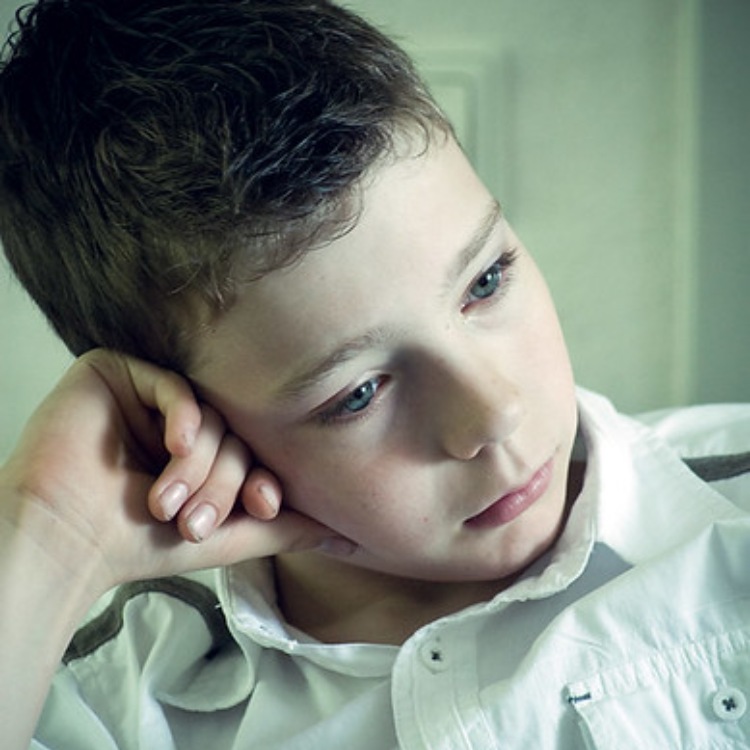
Their Consequences For Bad Behavior Are Appropriate
When it comes to disciplining your child for their bad behavior, remember that it should be appropriate for their age and what was done. Going overboard with discipline may generate distrust or fear. Conversely, being too lax may lead your kids to act out, because they don’t think you’ll follow through on providing consequences. A healthy balance will guide your child toward becoming a kinder, more respectful person.

They Create Routines
Creating routines for your children provides them with structure and security. It helps them develop time management skills, and allows them to get used to chores and habits, such brushing their teeth. As with all aspects of parenting, moderation is important. Don’t be so set on routine that you pass up opportunities for spontaneity and fun. After all, staying up past 9 pm once in a while to watch a movie is the stuff kid dreams are made of.

They Remain Flexible
As much as children need clear guidelines, it’s in their best interest that you maintain a level of flexibility. You want to teach them well and keep them safe, and that’s totally understandable. Even so, avoid placing so many restrictions that you stifle their independence and creativity. Try not to focus so heavily on the rules that you impede their self esteem, confidence, or natural curiosity.

They Talk To Their Kids
Talking – and perhaps more importantly, listening – to your kids will deepen your bond with them. They learn how to communicate openly and express themselves confidently with you and others. They’ll also know that they can talk to you about anything: the good, the bad, and the ugly.

They Read To Their Kids
Your teenagers will grow out of bedtime stories eventually, but take advantage of sharing stories with your younger kids for as long as they’ll let you. It’s been proven that reading to children improves their verbal skills, social skills, and academic performance. Don’t forget one of the best parts of this practice: it’s a fun, memorable way to spend quality time together.
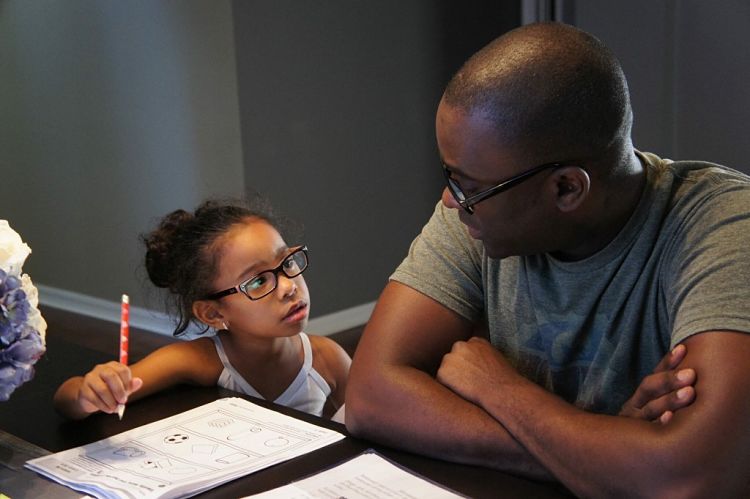
They Help Their Kids With School Work
School can be a tough time for most kids, but taking an active interest in your child’s homework helps improve their grades and allows you to keep track of their progress. If you’re a little worried that some subjects might challenge you (common core math, anyone?), the most important part is being there. If you don’t know something, it’s okay to tell your kids and learn the answer together.

They Spend Time Together
In this fast-paced world, it’s important to take time out of your crazy schedule to hang out with your kids. This doesn’t mean you need to take them to Disneyland every year. Rather, it’s important to engage with your kids and express interest in what they’re up to on a daily basis. Take a few minutes to color together or ask to hear their current favorite tune. Your children will grow up feeling assured that you’ll always make time for them, no matter how crazy life gets.

They Teach Gratitude
Teaching your kids gratitude will guide them to appreciate the good things in their life. Being thankful has been shown to improve happiness and awareness in kids and adults. And the benefit is two-fold; as your kids develop gratitude, they’ll also spend a little less time feeling jealous of what other kids have.

They Teach Kindness
Although some people are inherently nice and others are less so, you can always teach your child to practice kindness. Lead with your positive example and teach them to put themselves into other people’s shoes. Guide your children as best you can to be thoughtful and considerate in their words and actions. Your kids will undoubtedly grow up to be more empathetic and helpful to those around them.

They Let Kids Pick Up After Themselves
Kids are little humans who are going to be adults someday. Letting your kid clean up after themselves is one of the many ways they learn about responsibility and self reliance. Make it a fun family activity to sneak the lesson in. Turn the chores into a challenge, offer sticker rewards, or clean to their favorite music. You’ll teach them a life skill, but to them, it’ll just seem like another form of play. What’s not to love?
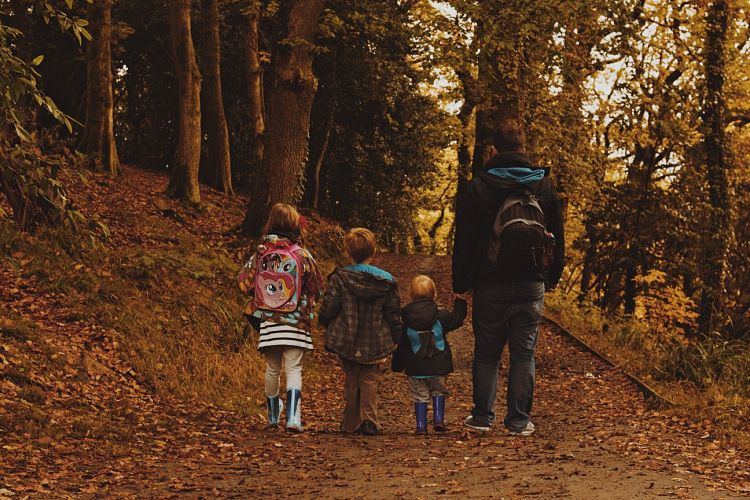
They Are Present
It’s important to be present with your children, which means more than just physically being around them. Put away your phone and listen. Take an active interest in who they are and what they care about. Don’t dismiss their questions, involve them. Sharing the moment with kids and valuing their presence in your lives will lead to a happier, more connected family.

They Give Their Kids Some Independence
Independence is something that everybody has to learn someday. Why not start while your kids are still young? Offer them some wiggle room to make choices, even if it means messing up. That doesn’t mean you should let them decide everything on their own. However, allowing them to develop confidence and the ability to choose wisely is an important part of your kid’s development.

They’re Not With Their Kids 24/7
Your kids are individuals who need their alone time, just like everyone else. Always being in their personal space might leave them feeling restricted or overwhelmed. Your kids are great, but allow them to entertain themselves and use the opportunity take your own space, unwind, and relax.
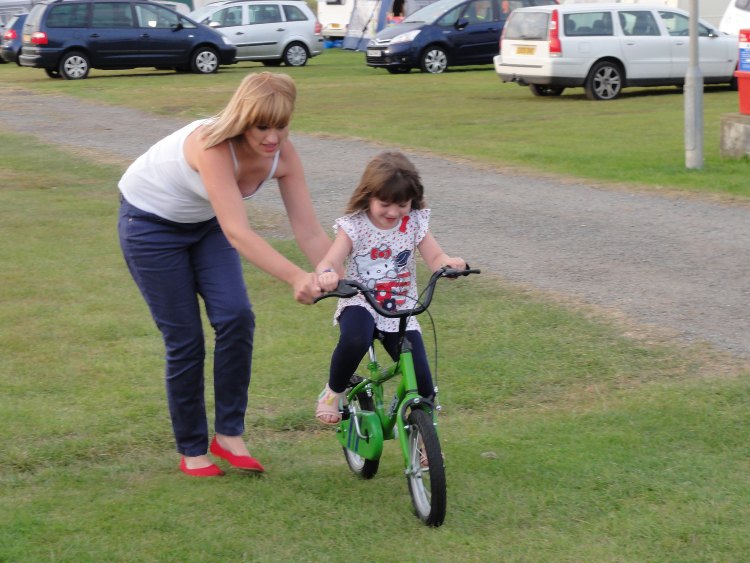
They Let Their Kids Face Obstacles
There will always be obstacles in life and, as a parent, you might to shield your kids from that. Doing so will hamper their personal growth though, so allow them to come up with solutions on their own. Your only role is to guide them through the process.

They Are Positive
You are your child’s first and most important teacher. Choose to express positivity whenever you can. That doesn’t mean you need to be chipper all the time. Instead, try to focus on the good in others and finding the silver lining on difficult situations. Modeling positivity will help teach your kids the important of resilience and contribute to a good attitude that will benefit every area of their lives.

They Have Good Senses Of Humor
Having a good sense of humor is an effective coping mechanism that makes it easier to deal with stressful moments. Your kid learns from you how to not take life so seriously and that it’s okay to poke fun at yourself (and others) every now and then.

They Place Emphasis On Experiences And Not Things
We are the total sum of our experiences, and while physical objects are nice, they only offer temporary happiness. Kids need to know that there’s knowledge and joy often comes from experiences – even the unpleasant ones. Encourage your child to engage with their world and loved ones to help beat stress and boredom.
They Nurture Their Kids’ Talents
While academics are important, it’s just as necessary for your kid to hone their natural talents. Making the most of their gifts and abilities gives kids something to look forward to everyday, and sets them up for success later on in life.

They Know The Importance Of Physical Activity
We all know how much the body benefits from physical activities, but not many people know that it stimulates your mind as well. Your mood in particular receives a huge boost due to those feel-good endorphins and chemicals that are released by the brain. Help your kids get moving by having dance parties, going for walks or bike rides, or just running around the playground.

They Are Consistent
Some parents only seem to be consistent when its comes to discipline. A well-rounded child is one that receives a regular, healthy amount of praise and affection. Be consistent with your affection and communication and you’ll teach your child that you are reliable and mean what you say.

They Give Their Children Healthy Food
Kids grow very quickly, and for their bodies to keep up, they need a balanced diet that provides them with the right nutrients. Well-nourished children are shown to have better memory and alertness, and as a result, perform much better in school.

They Empower Their Kids
Kids are impressionable, and how they’re treated makes all the difference. Empower them through praise and teach with constructive criticism when they make their own choices. Most importantly, remind them that their mistakes don’t define who they are.
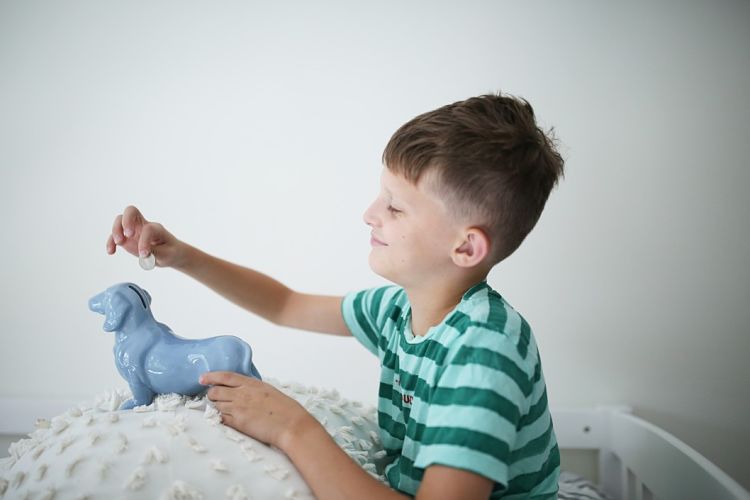
They Emphasize The Importance Of Saving
From a young age, children should be taught the importance of saving for rainy days. A great way to do this is through using piggy banks or even bank accounts when they’re older. Not to mention, it helps teach kids the value of their work when they’re rewarded for contributing to the household or doing extra chores.
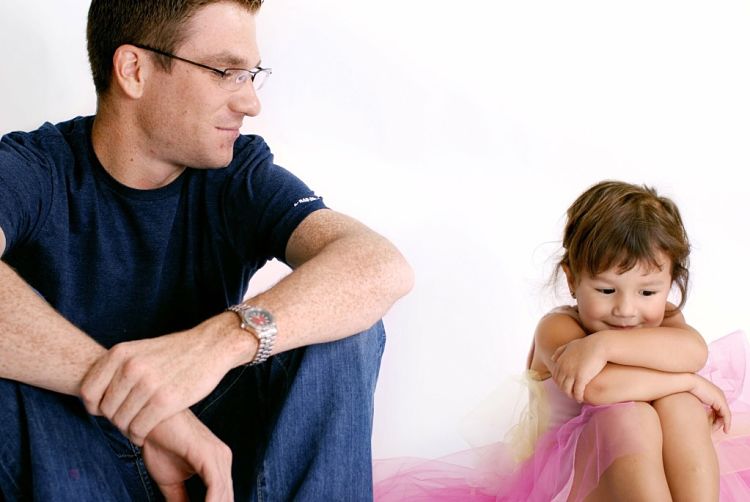
They Live For Honesty
People sometimes find it hard to tell the truth. Honesty should be encouraged and nurtured in children, but also in yourself as well. Good parents provide positive role modeling to their kids by telling the truth, even when a white lie feels easier.
They Emphasize The Need For Humility
The quote, “never look down on anybody unless you’re helping them up,” is a lesson every child should be taught. Remind your kids that they can be proud of themselves without putting others down. Teach them to celebrate the successes of others as much as their own, and to never look down on others for what they can’t do.
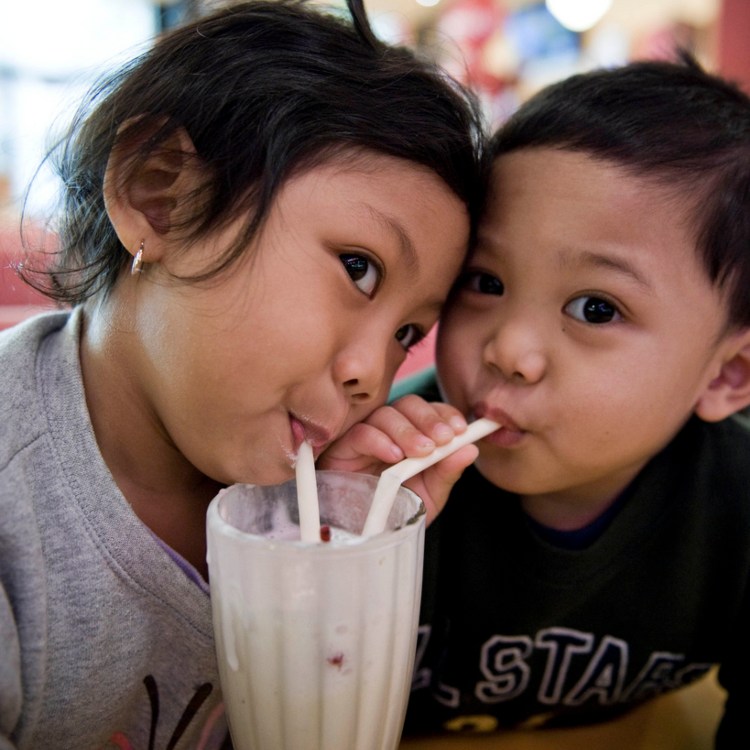
They Teach That Sharing Is Important
When children learn to share, it puts a smile on their face and everyone else’s. Guide your kids through your example by sharing with them. Let them partake of your goodies or wear your favorite hat, and tell them how it makes you feel. Explain that when sharing occurs, both people experience joy.

They Teach Their Kids That Hard Work Pays Off
Kids should be taught that they won’t be given everything they desire on a silver platter. Instead, encourage them to work for what they want. Perhaps ask them to do an extra chore or clean their bedroom really well before you get them a new game. Everyone has to work for what they want in life, and the sooner your children learn to apply themselves, the better.

They Give Their Kids Respect
A lot of adults make the mistake of thinking that kids don’t deserve respect, or they become so focused on being recognized as an authority figure that they don’t recognize the validity of their child’s feelings. That kind of attitude and treatment damages a child’s self-worth and their relationships with others. Showing respect to a child lets them know that they matter and teaches them how to set boundaries with others.

They Are Empathetic
Everyone was a kid at some point, which many adults forget when they have kids of their own. Being empathetic with your child while they’re going through a difficult moment gives them the reassurance they need to push through. Dig deep and remember what it was like to be a kid, back when you didn’t know a fraction of what you know now. Share in your kids journey; it’ll comfort them to know that you can relate to their experiences.
They Are Not Afraid To Be Affectionate
Actions speak louder than words. Good parents know that their love for their kids are not limited to only words, and shower them with hugs and kisses as well. Engage in cuddles and tickles to reinforce that you mean all the good things you say to them.

They Define Their Family Values
Every family has a set of values and moral standards that defines who they are. This could tie into religious belief systems or simply valuing traits such as patience, honesty, and loyalty. Share why you value what you do and create traditions when necessary. This helps kids understand their identity as a member of your family.

They Are Calm, Even When Angry
Kids are not perfect angels, and there are times when they let you down. Avoid lashing out when you’re angry and demonstrate how to control and process your emotions in a healthy, respectful way. Not to mention, kids are more likely to take in what you’re saying when you remain calm and collected.
They Are Never Spiteful Or Belittling
Name-calling and being spiteful to children may stem from a lack of maturity or deep emotional pain on your part. Even though you’re entitled to your feelings, good parents take responsibility for their behavior. Don’t hurt or contribute to resentment in your kids. Be kind and respectful in everything you do.

They Don’t Let Their Imperfect Relationships Affect Their Kids
Going through a divorce, break up, or separation is extremely difficult, and good parents know that their children may find it confusing or scary. It’s important for parents to distance themselves from whatever’s going on with their personal lives to avoid affecting their children in a negative way. When your kids are old enough, you can explain what is going on and remind them that the relationship between you and your kid won’t change.
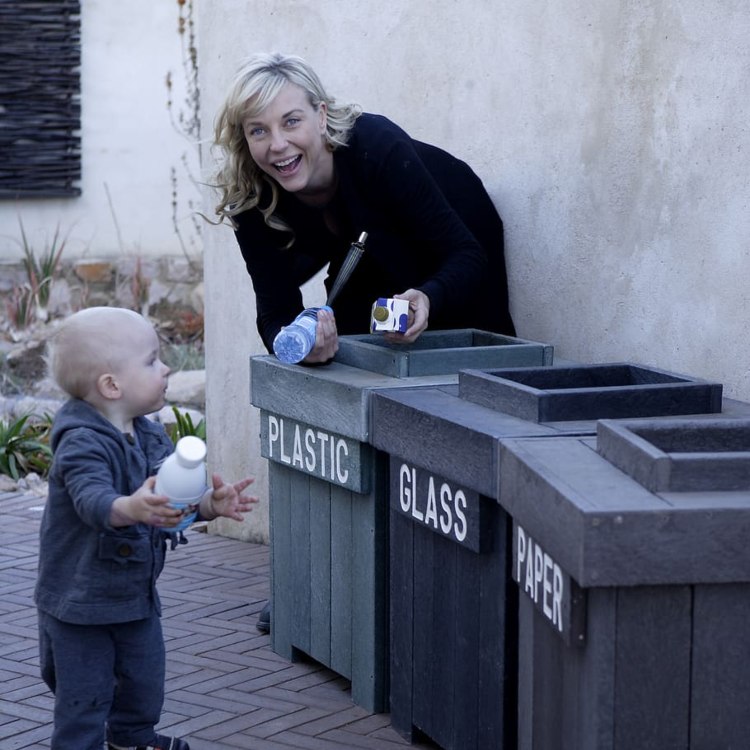
They Lead By Example
Good parents know that children will not take them seriously if they say one thing but do the complete opposite. You must practice what you preach. Show them how to be a good, kind, and respectful person just as often as you tell them how important those traits are.
They Are Accountable And Apologetic When They Make Mistakes
Children are a lot more perceptive than they’re given credit for. Good parents know that perfection does not exist and that there will be times when they will mess up. Hold yourself accountable, apologize to your kids when you hurt them, and encourage your kids to own up to their faults, too.
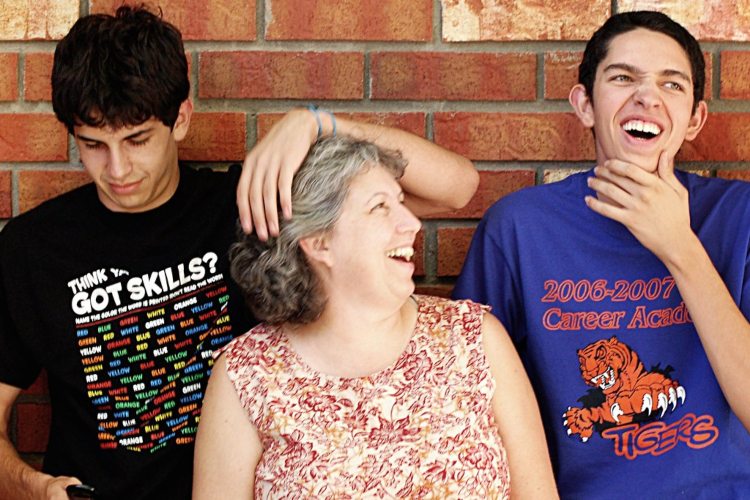
They Teach Their Children How To Be Good People
What qualities make a person good? The truth is, the answer to that question is complicated and highly personal. However, whatever you think it means, it’s important to raise your kids to embody that goodness. It’s your responsibility to teach your kids kindness, honestly, reliability, or whatever other positive traits you hope they develop. Parents are ultimately the biggest influence on their children’s character, which serves as the foundation for the rest of their lives.
